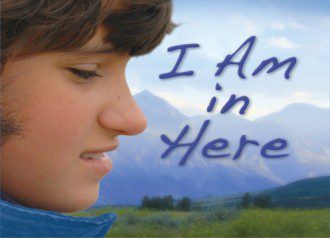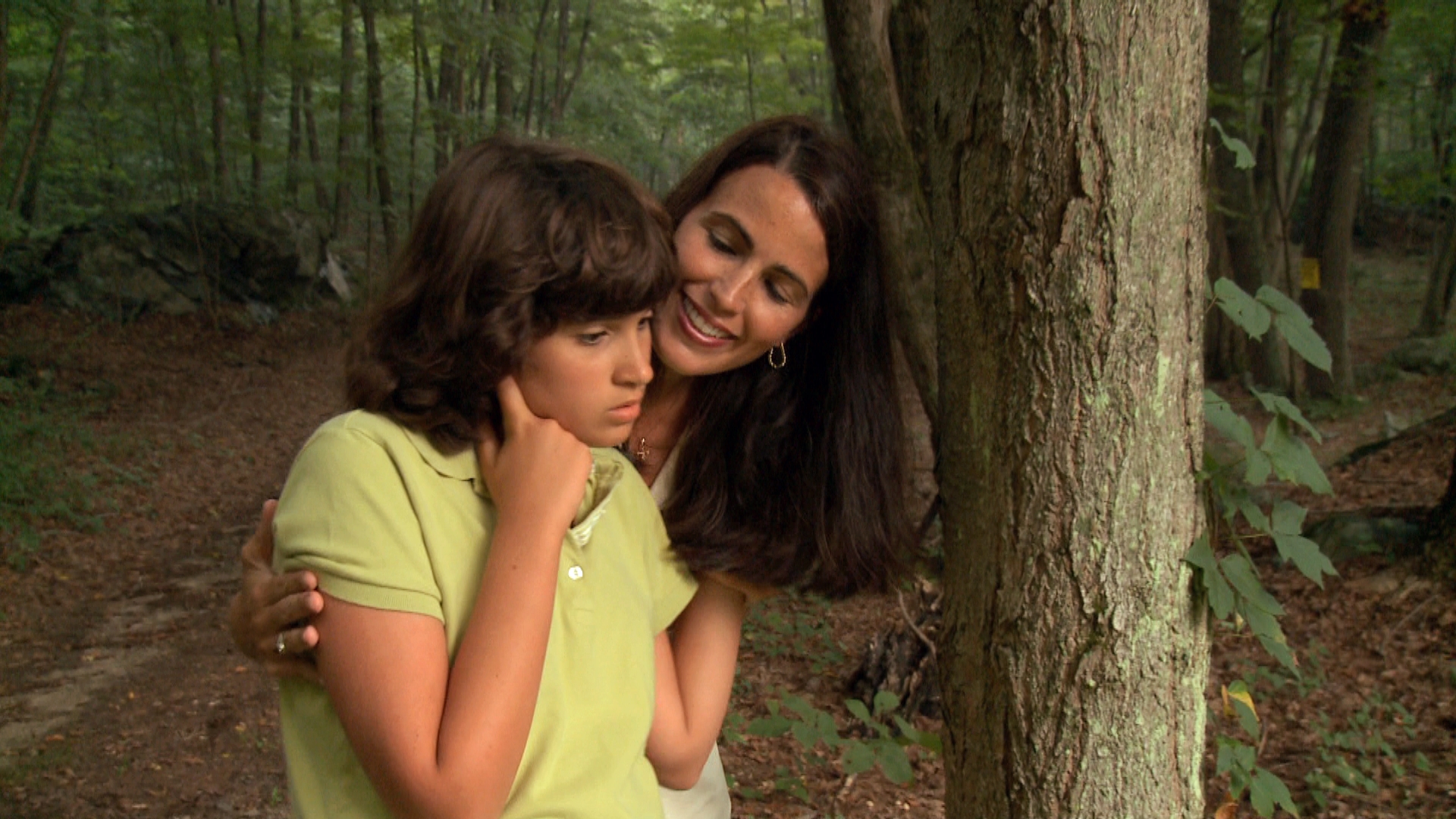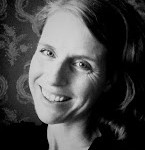Contributing Writer for Wake Up World
Autism is a disorder that tends to attract generalized assumptions, where the person in question is lumped together with others and rarely viewed as a complex individual with their own wants, needs and desires. Biased views towards those who never learn to speak can be even more pronounced. As one mother of a severely autistic child once asked, “How much can really be going on in there?”
But then we have children like Elizabeth Bonker, a young poet who shatters many of the preconceived notions we have about non-verbal autism. Through her art, she illuminates the inner world of autism — with astonishing depth and vision.
Questioning Autism
The term autism is a relatively new designation, which was developed during World War II by two physicians independent of one another. Historically speaking, some of our greatest minds are thought to have been autistic — Newton, Mozart, Beethoven, Jane Austen, Kant, Jefferson, Darwin, Einstein, Lewis Carroll, Emily Dickinson and Wittgenstein.
Currently, with the range of autism spectrum disorder being stretched to the limit, many scientists have questioned where to draw the line between an actual pathology and an individual who simply does not fit into a preconceived box of societal ‘normalcy.’
Leo Kanner was one of the first physicians to identify autism as a disorder separate from the conventional diagnosis of “imbecility,” “mental retardation” and schizophrenia. Classified as a type of “selfism” with social isolation at its root, children that would have been dumped into mental institutions, were now viewed differently. With Kanner’s new category, parents received validation for their belief that locked behind the “mask of autism” there was an intelligent, feeling person.
Today, Elizabeth is living proof of that inner knowing experienced by those parents long ago.
A Deep Silence
As a baby, Elizabeth was gregarious and happy with lots of energy. Up until she was 15 months old, she spoke to her parents and had a sparkle in her eye. Within a week, she lost all language and didn’t even recognize her own name. Elizabeth began to bang her head on the floor and display very repetitive behaviors. “It’s horror. It’s horror to see your child slip away from you,” said her mother.
Regrettably, the usual association with being non-verbal is one of non-thinking. This couldn’t be further from the truth. From an early age, Elizabeth had an army of therapists in her home day and night in an attempt to trigger speech. One technique — Rapid Prompting Method — did help her to communicate with a letterboard and computer. Over many years, she learned how to type with a single finger. At one point, Elizabeth typed “agony.” When asked by her therapist if Elizabeth knew what that word meant, she responded “quite so.” Elizabeth’s agony was that she needed to talk, but couldn’t. Since then, she has written more than 100 poems.
Her mother feels that Elizabeth’s poetry reveals a deep spiritual life, “contemplating God in a way that went beyond what she learned in Sunday School,” Virginia says. “The burden of autism has helped us both understand one of life’s great mysteries. The most tangible way we experience God is through the presence of the people God has placed in our lives.”
Fortunately for Elizabeth, she had a extraordinary 1st grade teacher who saw past her ‘disorder’ and felt she was actually quite gifted, with treasures hidden within. Elizabeth was then given an IQ test. It was decided that as soon as Elizabeth answered 10 questions incorrectly, the test would be finished. They ran out of questions before that happened, even when she was given questions at a high school level. Ultimately, she tested in the genius range. When asked how she knew everything that she did at such a young age of six, Elizabeth typed: “I am listening.”
Her speech therapist once remarked, “Maybe she just doesn’t want to talk?” Elizabeth responded with the following poem:
Me
I sometimes fear
That people cannot understand
That I hear
And I know
They don’t believe I go
To every extreme
To try and express
My need to talk.
If only they could walk
In my shoes
They would share my news:
I AM IN HERE
And trying to speak everyday
In some kind of way.~ Elizabeth, age nine
Her mom believes Elizabeth actually thinks more deeply because of the silence. As a young girl, Elizabeth said: “My heart feels so sad for the children of Iraq who live in fear.” So much for the myth of social isolation.
Things I Know For Sure
There is a God.
I am loved.
The sun will shine.
I will survive autism.~ Elizabeth, age 12
Elizabeth leaves us with this final thought: “On the darkside is the traditional belief that we have no language. Free your minds from disbelief.”
Bright Future
When you see
A tree
Think of me
Growing strong and tall.When you see
The sun shining brightly
Think of me
Tough and mighty.When you see the water on the lake
Think of the future
I plan to make.Me
Strong
Mighty
Free.
Elizabeth’s poetry can be found in her book: I Am in Here: The Journey of a Child with Autism Who Cannot Speak but Finds Her Voice.
Autism Virginia Breen and Elizabeth Bonker
Article sources:
- www.tedmed.com/talks/show?id=7301
- www.newyorker.com/magazine/2016/01/25/seeing-the-spectrum
- www.iaminherebook.com/book-3
- www.newscientist.com/article/dn3676-einstein-and-newton-showed-signs-of-autism
Further reading from Carolanne Wright:
- Autistic Boy with Higher IQ Than Einstein Discovers Gift After Removal from State-Run Therapy
- Monsanto Charged with Crimes Against Nature and Humanity – Set to Stand Trial in 2016
- Dr Sebi: The Man Who Cures Aids, Cancer, Diabetes and More
- Politicians in California May Soon be Forced to Wear Corporate Sponsor Patches Like Nascar Drivers
- Plastic-Eating Mushroom Discovered in the Amazon Rainforest — A Solution for Our Trash Saturated World?
- Big Pharma and Organized Crime — They are More Similar Than You May Think
- Over 100 Scientific Studies Agree: Cannabis Annihilates Cancer
- Emotional Energetic Healing: The Future of Medicine is Here
- Why Every Parent Should Consider Unschooling
- The Greenhouse of the Future: Grow Your Own Food Year-Round With This Revolutionary System
- First U.S. City Produces More Electricity Than It Uses — With 100% Renewable Technology
About the author:
I’m Carolanne — a writer, chef, traveler and enthusiastic advocate for sustainability, organics and joyful living. It’s good to have you here. If you would like to learn more, connect with me at Thrive-Living.net or visit Twitter.com/Thrive_Living.

If you've ever found value in our articles, we'd greatly appreciate your support by purchasing Mindful Meditation Techniques for Kids - A Practical Guide for Adults to Empower Kids with the Gift of Inner Peace and Resilience for Life.
In the spirit of mindfulness, we encourage you to choose the paperback version. Delve into its pages away from screen glare and notifications, allowing yourself to fully immerse in the transformative practices within. The physical book enriches the learning process and serves as a tangible commitment to mindfulness, easily shared among family and friends.
Over the past few years, Wake Up World has faced significant online censorship, impacting our financial ability to stay online. Instead of soliciting donations, we're exploring win-win solutions with our readers to remain financially viable. Moving into book publishing, we hope to secure ongoing funds to continue our mission. With over 8,500 articles published in the past 13 years, we are committed to keeping our content free and accessible to everyone, without resorting to a paywall.










